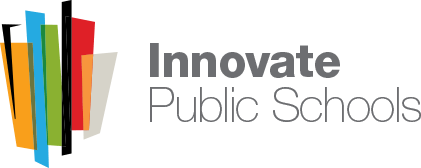Partnering with the district and community means working together with schools and community organizations to improve tutoring. Advocacy means speaking up for access to high-impact tutoring. Here are some ways to partner and advocate for high-impact tutoring.

Partnering with the district and community means working together with schools and community organizations to improve tutoring.
Families should get support to understand their child's grades and test scores. This can help show if the child is performing as expected for their grade. When families have the tools and information on how to help, it makes a big difference and helps them succeed in school. By sharing information about how kids are doing in school, it helps everyone work together to help them learn better. This includes sharing information about grades, where students are doing well, and where they can improve.
Building Open Communication with Teachers
Families and teachers both have an important job: talking openly and working together to help your child do better in school. You can start by asking your teacher when they have time to talk, and then talking openly with your child’s teachers. This could be a short conversation where you can share what you hope and worry about for your child. You can also talk about what you want your child to achieve and ask teachers how they can get there.
This guide explains when schools usually share information about a student’s academic progress throughout the school year. It also has information about when schools usually partner with families and students on high-impact tutoring. Use the checklists and questions to stay informed throughout the year. Click the image to learn more!

Advocacy means speaking up for access to high-impact tutoring.
Here are some ways you can advocate for your child:
-

Send an advocacy letter to your child’s school district, principal, or teacher. Encourage other families to also send advocacy letters. -

Read and understand student data using greatschools.org. Compare student achievement in your child's school with achievement in other schools in your state. -

Schedule a meeting with your child’s teacher and/or principal to discuss high-quality tutoring opportunities for your child. Below are a few questions you can ask. -

See the "Additional Resources" section for even more ideas!
Advocacy Letter Templates
Use these templates to develop your own advocacy letters to:
Questions to Ask
Above we talked about open communication, partnership, and advocacy around high-impact tutoring. Here’s a list of questions you can ask to do all three!
Questions to ask your school, principal, district, or program:
- What tutoring programs are offered?
- Who is eligible for tutoring? How are students selected?
- Is there a tutoring program my child can participate in?
- If not, why not and how might my child participate?
- If yes, how do I enroll my child?
- What can I do to support my child so they get the most out of it?
- Is 1:1 or small group tutoring provided? Is tutoring provided in-person or virtually?
- Are students paired with tutors or do the tutors rotate?
- Are tutors receiving ongoing training and support?
- Does tutoring take place during or after the school day? Is summer tutoring provided?
- Is data being collected to measure program success?
- Has the tutoring program been awarded the NSSA Program Design Badge showing the program is aligned to the research on what is high-impact?
- What state or federal funding can you leverage to provide and scale tutoring?


